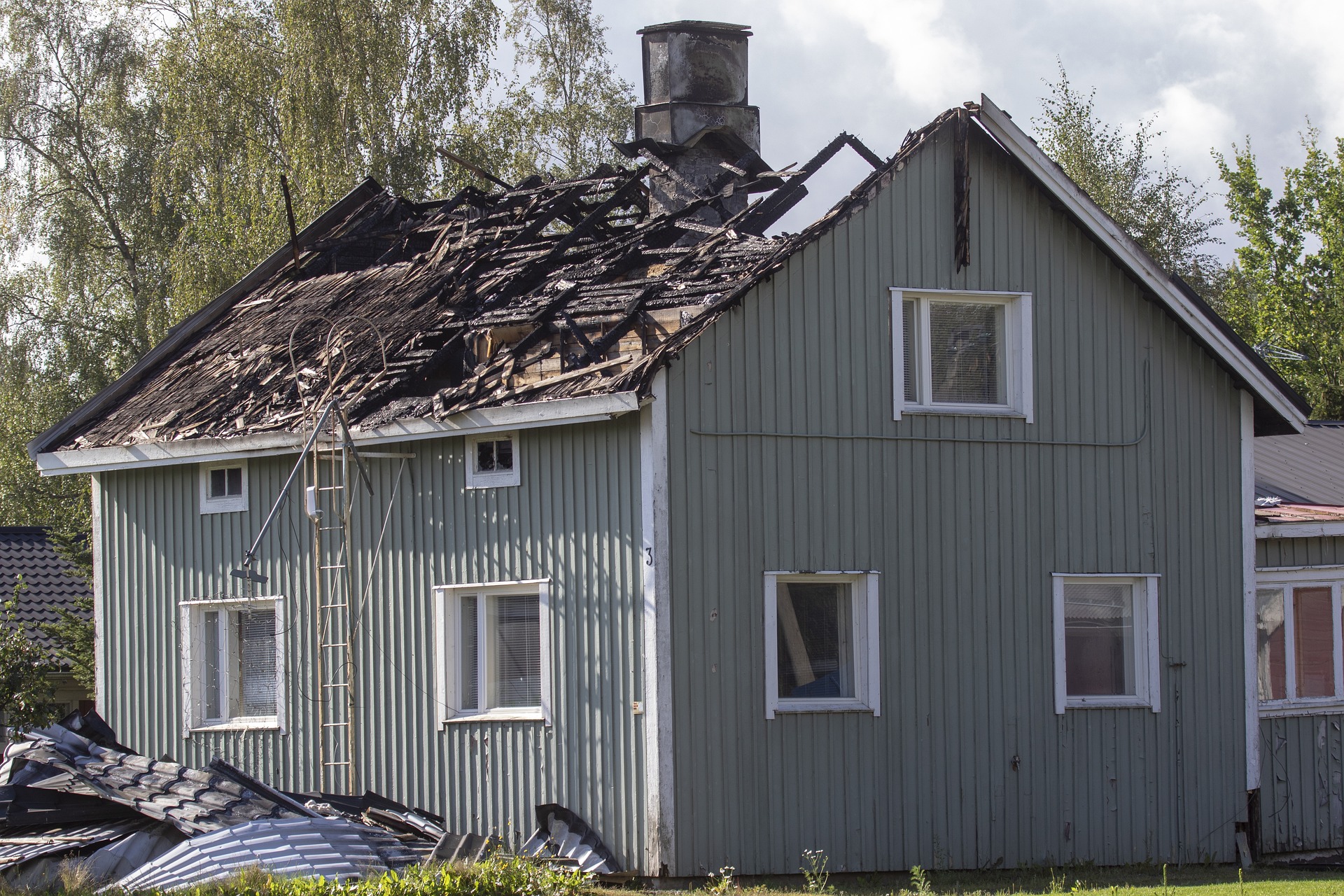Selling a home damaged by fire, often called a fire-damaged house, brings unique challenges. Fire can cause extensive damage to a property’s structure, fittings, and finishes, requiring major renovation work before the home is habitable again. Knowing how to market and sell fire-affected properties appropriately as a real estate agent can help clients maximize their sale price when faced with the complexities of selling a fire damaged house. This involves understanding fire damage, preparing the property for sale, pricing strategies, marketing techniques, and expert negotiation to attract the right buyers.
Overview of the fire damage real estate market
The market for fire-damaged properties is niche, attracting investors, builders, and homeowners who can conduct repairs. There is demand for fire-damaged homes priced appropriately and marketed to the right buyers. Agents knowledgeable about assessing fire damage, estimating repair costs, and negotiating sales can help sellers take advantage of opportunities even in challenging situations.
Understanding Fire-Damaged Properties
Properties can have minor to major structural and aesthetic damage from fires sparked by electrical faults, lightning strikes, and bushfires. Smoke residue, water logging from hoses, and collapsed walls or roofs need extensive repairs. Understanding the extent of damage by getting qualified assessments helps determine listing price and renovation costs. This informs marketing and sales strategies.
Assessing Fire Damage in Real Estate
Professional loss assessors inspect fire-affected properties to survey structural integrity, essential services, fittings, and finishes to estimate repair and restoration costs. Certifications like smoke and occupancy certificates may be required before occupation. Getting detailed technical reports is crucial when marketing fire-damaged homes to buyers.
The Impact of Fire Damage on Property Value
While most buyers shy away from fire-damaged properties requiring extensive repairs, this presents an opportunity for some investors. The damage generally devalues the property substantially below market rates. Understanding this reduced value and pricing accordingly is key to selling fire-affected real estate. List prices must reflect repair estimates.
Preparing Fire-Damaged Properties for the Market
Presale preparations like clearing debris, securing structures, and consulting engineers help attract more buyers. Renovations can also boost value but require reliable cost analysis on whether to sell as-is or invest in repairs first. Consider timeframes, costs, and end property values before investing.
Renovating Fire Damaged Homes
Repair works to make fire-damaged buildings occupiable include structural repairs, roof and wall rebuilding, electrical rewiring, plumbing, and restoration of fittings and finishes. Use qualified trades specialists for essential structural, electrical, and gas repairs. Cosmetic changes like repainting may have a better return on investment.
Estimating Fire Damage Repair Costs
Construction contractors provide itemized quotes on essential and cosmetic repairs to restore fire-damaged properties. These professionals have experience transforming distressed homes. Accurate estimates help ascertain the viability of renovations against potential resale value for the neighborhood.
Legal and Insurance Aspects
Navigating insurance claims, councils, utilities, and tradies requires knowing regulations around fire-damaged properties. Engage professionals like loss assessors, claims specialists, and lawyers early. Understand disclosure requirements before advertising fire-affected homes.
Navigating Insurance Claims for Fire-Damaged Homes
Specialist public loss assessors help expedite viable insurance claims, provide repair estimates, and offer certified reports to aid your application. Check policy coverage for fire damage events early and discuss options to rebuild, pay a total loss or cash settle. Provide detailed, timely information to settle claims faster.
Legal Considerations and Disclosure Requirements
Get lawyers to ensure contractual compliance managing previous owners’ rights, rendering the property safe, and mandatory disclosures about the property’s fire damage in all advertisements and communications with buyers. Failing to qualify for fire history legally may risk sales falling through.
Valuation and Pricing Strategies
Engage qualified valuers who understand fire-related property risks, required repairs, rebuilding costs, and current market rates in the location. The value must appropriately factor in damages, potential red flags for buyers, and viable comparables. Set reasonable asking prices reflecting restoration costs.
Valuing Fire-Damaged Properties for Sale
Qualified valuers consult technical assessments and market data to estimate current and post-renovation potential value minus repair costs. This helps set the listing prices and offers guidance on maximizing sale outcomes: negotiate prices above the completed renovation value. Consider enforced sales may attract lowball offers.
Fire Damage Impact on Property Prices
Due to negative buyer perception of fire-damaged properties, the listing price can be reduced to even 50% below market value. However, exact reductions depend on the extent of damage and valuer recommendations, factoring in potential rebuilt value. Research sale prices achieved for comparable fire-affected homes nearby.

Marketing Techniques for Fire-Damaged Real Estate
Attracting motivated buyers relies on compelling and transparent marketing about the damage sustained. Engage marketing professionals to develop a sales strategy targetting buyers open to renovations. Advertise honestly, addressing concerns with facts on executed repairs.
Tips for Marketing Fire Damaged Properties
– Address the fire transparently by stating known facts and repairs made already in listings.
– Use online listing services specifically targeting flip investors and builders.
– Market realistically to buyers seeing opportunity in property distress and discounts.
– Stage any unaffected areas to keep buyers focused on potential, not just damage.
Digital Marketing Strategies for Burnt Houses
– Boost open house events on social media to engage investors & renovators
– Create video walkthroughs documenting fire damage and the scope of repairs needed.
– Geo-target digital ads to real estate investors searching in the area on platforms like Facebook
– Retarget past prospective buyers of fire-damaged homes still searching online
Selling Strategies for Fire-Damaged Homes
Maximise sales outcomes by determining the most viable strategy: sell the renovated property at a premium value or discount it as-is for the buyer to rebuild. Consider costs, overheads, potential sale prices, and targeted buyer demand. Market precisely to each buyer type.
Selling a Fire-Damaged House As-Is vs. Post-Renovation
As-is sales attract more bargain hunters, given lower prices but limited potential value gains. Completing renovations first creates improved value but requires huge investments, delays, and risks. Evaluate buyer demand for each option in the current market against money, time, and feasibility.
Best Practices for Selling Fire-Affected Homes
– Price homes with appropriate discounts below rebuilt potential value
– Disclose all damage and repairs needed in writing to buyers
– Have qualified agents handle buyer queries around previous fires
– Stage unaffected areas to focus buyers on potential
– Prepare extensive due diligence paperwork proving repairs done
Working with Specialized Real Estate Agents
Seek agents highly experienced in fire-damaged properties with networks of valuers, marketers, tradies, and lawyers. They can provide expert guidance, maximizing profitable outcomes for distressed properties requiring substantial renovations.
Real Estate Agents Specializing in Fire Damaged Homes
Specialist agents have valued thousands of fire-damaged properties. They tap contacts like restoration experts, tradies, and marketing professionals to execute sales smoothly. Their experience minimizes red tape and unrealistic expectations and maximizes prices. Leaning on niche expertise sells complex properties faster.
Benefits of Expert Guidance in the Fire Damage Real Estate Market
Specialized agents add value to understanding rebuilding costs, claim processes, safety regulations, and marketing techniques to profit from fire-affected houses. Their expertise and connections make distressed property transactions secure win-win deals for buyers and sellers.
Effective Negotiation and Sales Techniques
Leverage transparency around restoration requirements and expert access to motivate the highest sales prices from suitable buyers. Stage unaffected areas, focus on post-renovation potential, and strengthen bargaining position with formal pre-listing renovations.
Negotiating Sales of Fire-Damaged Properties
Prepare thoroughly for buyer negotiations around previous fire damage with documented disclosures, pre-listing improvements made, and expert opinions sought around remaining repair requirements. Stay firm if discounts already reflect rebuild costs—welcome builders’ inspections backing pricing.
Maximizing Profit on Fire-Damaged Property Sales
Research recent sales of comparable fire-damaged homes to benchmark pricing potential. Invest in minor renovations like debris cleanup and rewiring to strengthen bargaining position. The price under rebuilt market value considers all restoration costs documented through the formal scope of repairs.
Closing Deals and Post-Sale Considerations
Careful contract terms around liability, building & pest inspections, and settlement tails protect sellers even after fire-damaged houses sell and transferred ownership. Legally safeguard your interests.
Finalizing the Sale of Fire-Damaged Homes
Perform thorough due diligence, making all fire damage and restoration estimates available before buyers inspect or submit offers. Provide recent compliance certificates on completed electrical and structural repairs. Clearly define expectations around incomes, surveys, and title transfers in purchase contracts.
Real Estate After Fire – Moving Forward
Selling a fire-damaged property can be turbulent, but it is also an opportunity to recover value after a disaster through expert real estate guidance. Learn best practices for marketing distressed homes to motivated buyers. With the house repairs or sale finalized, progress to new beginnings.
Conclusion
Selling fire-damaged properties presents unique challenges but also hidden opportunities. By transparently showing documented fire damage, investing in achievable renovations, and pricing below rebuilt market value, motivated buyers can be targeted online and via specialist agents. Defining rebuild scope while legally protecting seller interests allows negotiated win-win deal outcomes. With resilience, adaptability, and expertise, potential value can be uncovered even after devastating disasters through strategic distressed home sales.






